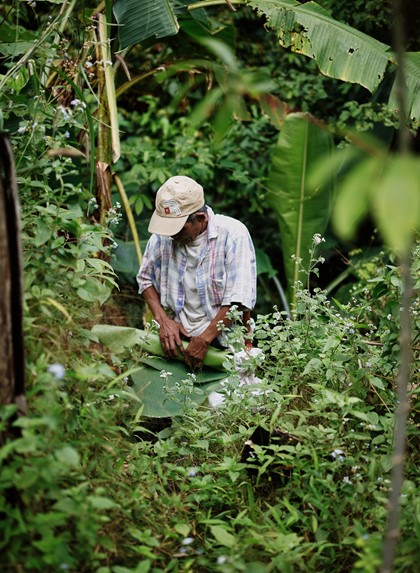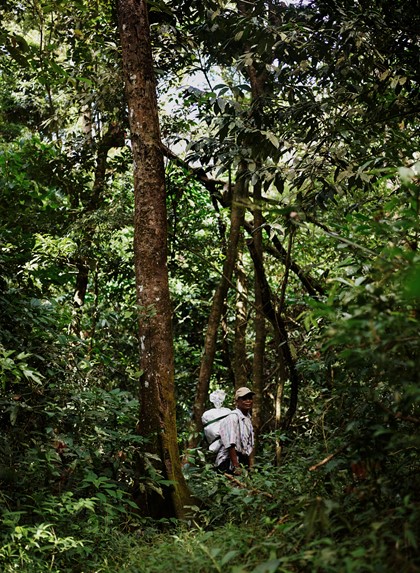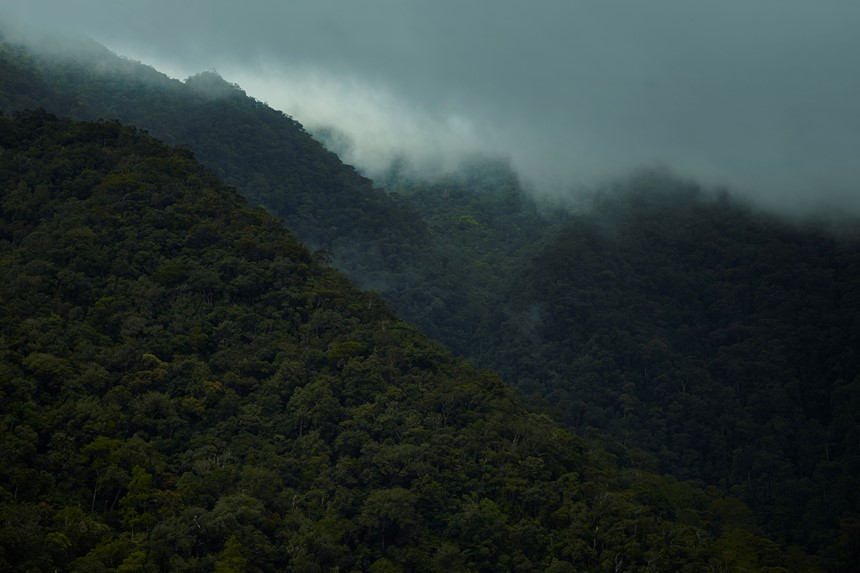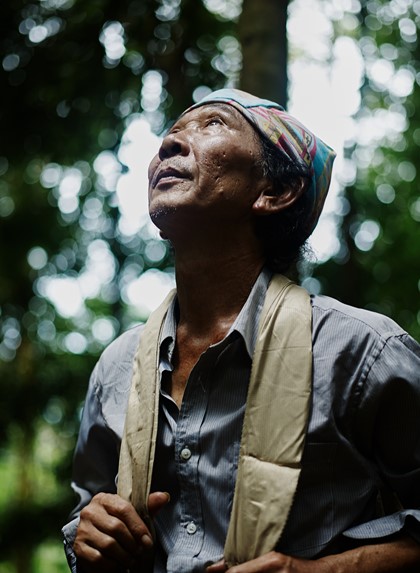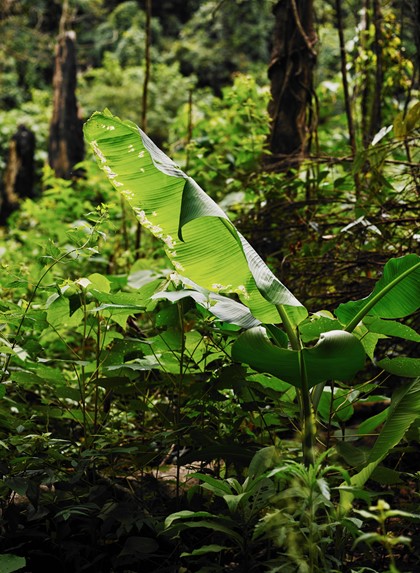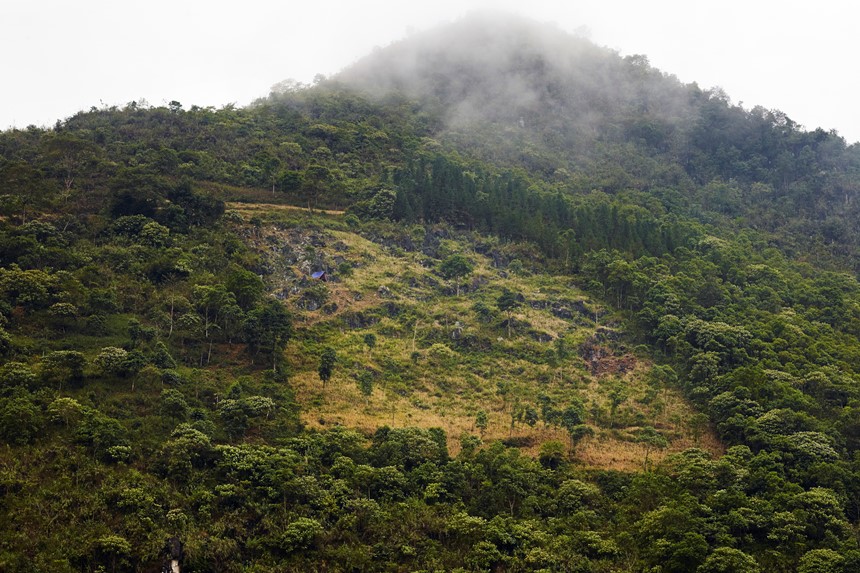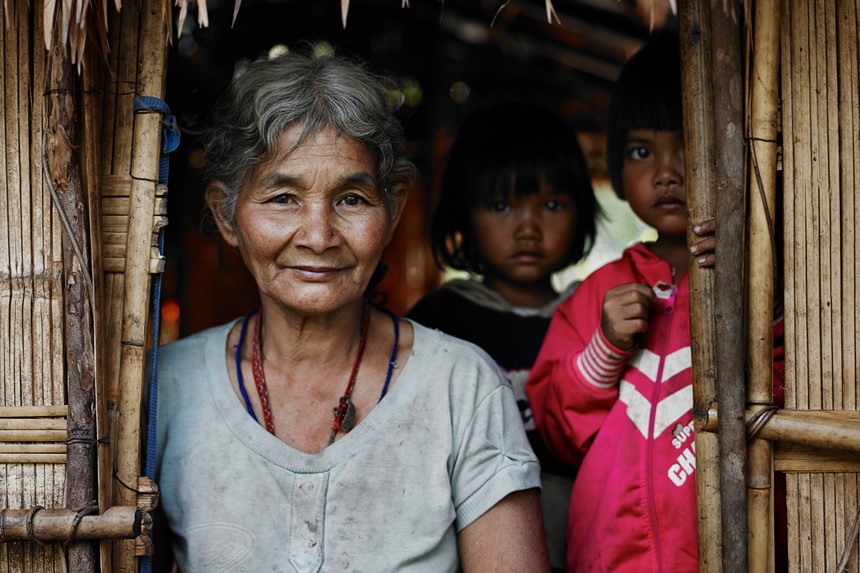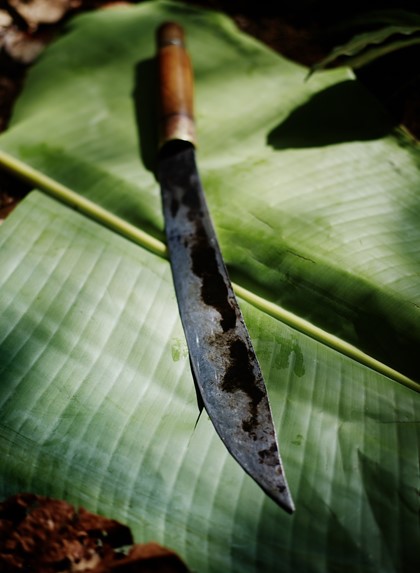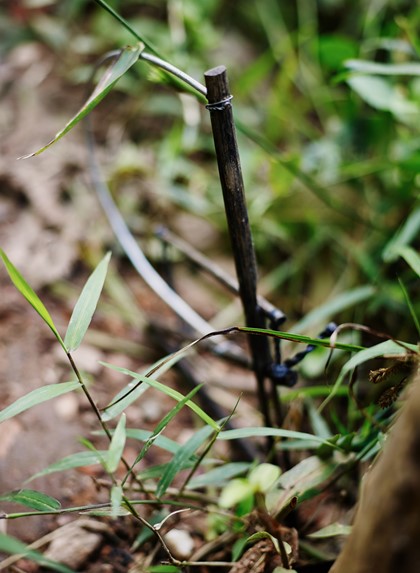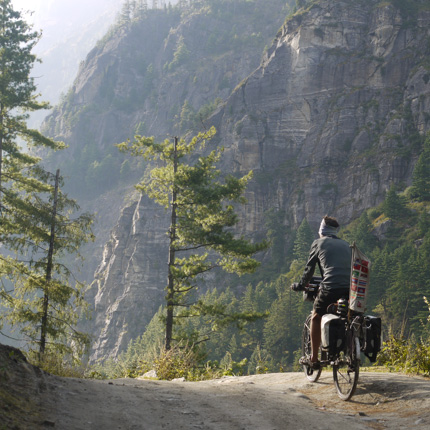Bahnar Jo Long men and women are considered equal, and generally share hunting, foraging and building tasks. We found ourselves among many male and female elders. This included the kindly Chief of the tribe, Mr. Deng, a short man with light-grey hair and leathery, dark-brown skin. He wore a permanent welcoming smile and was quick to erupt into delighted fits of shrieking laughter.
The Central Highlands is a lot cooler than the rest of tropical Vietnam, so we gave Mr. Deng a gift of warm outdoor clothing to share with the tribe. In return we were gleefully encouraged to drink homemade rice wine from a clay pot doing the rounds. The warm alcohol had a memorable kick, and given we hadn’t eaten much that day, probably wasn’t the best preparation for the remaining trek up into the high mountains, where we would be staying for the night. Without much ceremony, just a nod and smile, Mr. Deng gave us permission to continue to meet the community of Bahnar Jo Long families living on the mountain above us.
Our journey to this point was only made possible by our guide Mr. Anh, a local artist and sympathetic intermediary to the Bahnar Jo Long living in these remote hills. As translator, he quickly became our primary source of information. He was on good terms with the local police and government authorities - essential in this area, where historical tensions between indigenous groups and the Vietnamese government have led to travel restrictions. Government paperwork and passport checks were required before we left town, and we left duplicate paperwork with the surly local police as we neared the mountains.
Though there was fierce fighting in the Central Highlands during the Vietnam War (or the American War, as it’s known in Vietnam), people living in the mountains said the war largely passed them by. They could hear shelling and passing planes, but there was no fighting on the mountain. It was harder to find food but, hidden in the forest, their way of life went largely undisturbed.
However, Mr. Anh told us through tears that his experience of war was devastating. His father went missing in action fighting the North Vietnamese Army somewhere in the forest near Kon Tum, and his family had to relocate to Ho Chi Minh. His father was never found.



